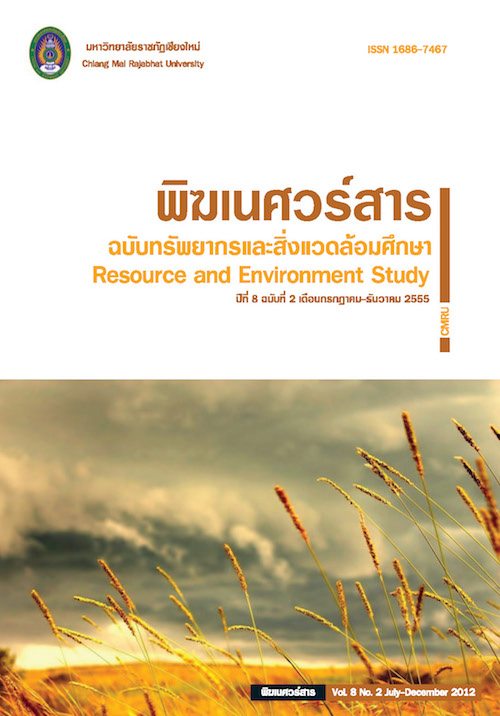การพัฒนาการอ่านจับใจความสำคัญของนักเรียนชั้นประถมศึกษาปีที่ 6 โดยใช้วิธีการสอนแบบเอสคิวโฟร์อาร์
Main Article Content
Abstract
[บทคัดย่อภาษาไทยไม่สมบูรณ์]
The purposes of this study were to design instructional plans of reading for main ideas of Prathomsuksa 6 students through SQ4R techniques and to study the achievement of reading for main ideas using the designed instructions’ plans. The target group consisted of 27 Prathomsuksa 6 students of Sirimungalanusorn School, Muang District, Chiang Mai Province in the second semester of academic year 2010. There were 3 devices used in the study. First, nine instructional plans each plan consumed two hours. Second. Third, a reading record notebook for additional reading after each plan. Fourth, a questionnaire on the opinions about learning reading though these techniques, which consumed two hours for each plan with the total of 18 teaching hours. The collected data were analyzed by using means, standard deviations, percentage and t-test dependent percentage through tables with description.
The findings were as follows :
1. The designed instructional plans on reading for main ideas of Prathomsuksa 6 through SQ4R techniques were effective in developing students’ learning achievement with the average score of 90.39 percent with was higher than criterion of 80 percent.
2. The reading achievement for main ideas through SQ4R teaching could be divided into 3 interns
2.1 The students’ learning achievement of reading for was main ideas before and after studying at the .01 level. The mean score of the posttest was higher than of the pretest.
2.2 The quality level of reading record notebooks after learning through this technique was at very good level (3.74)
2.3 96.30 percentages of the students has positives opinions about learning through these techniques.
Downloads
Article Details
The articles published are copyrighted by the Graduate School, Chiang Mai Rajabhat University.
The opinions expressed in each article of this academic journal are solely those of the individual authors and do not reflect the views of Chiang Mai Rajabhat University or its faculty members. The responsibility for the content of each article rests entirely with the respective authors. In the event of any errors, the authors alone are responsible for their own articles.


